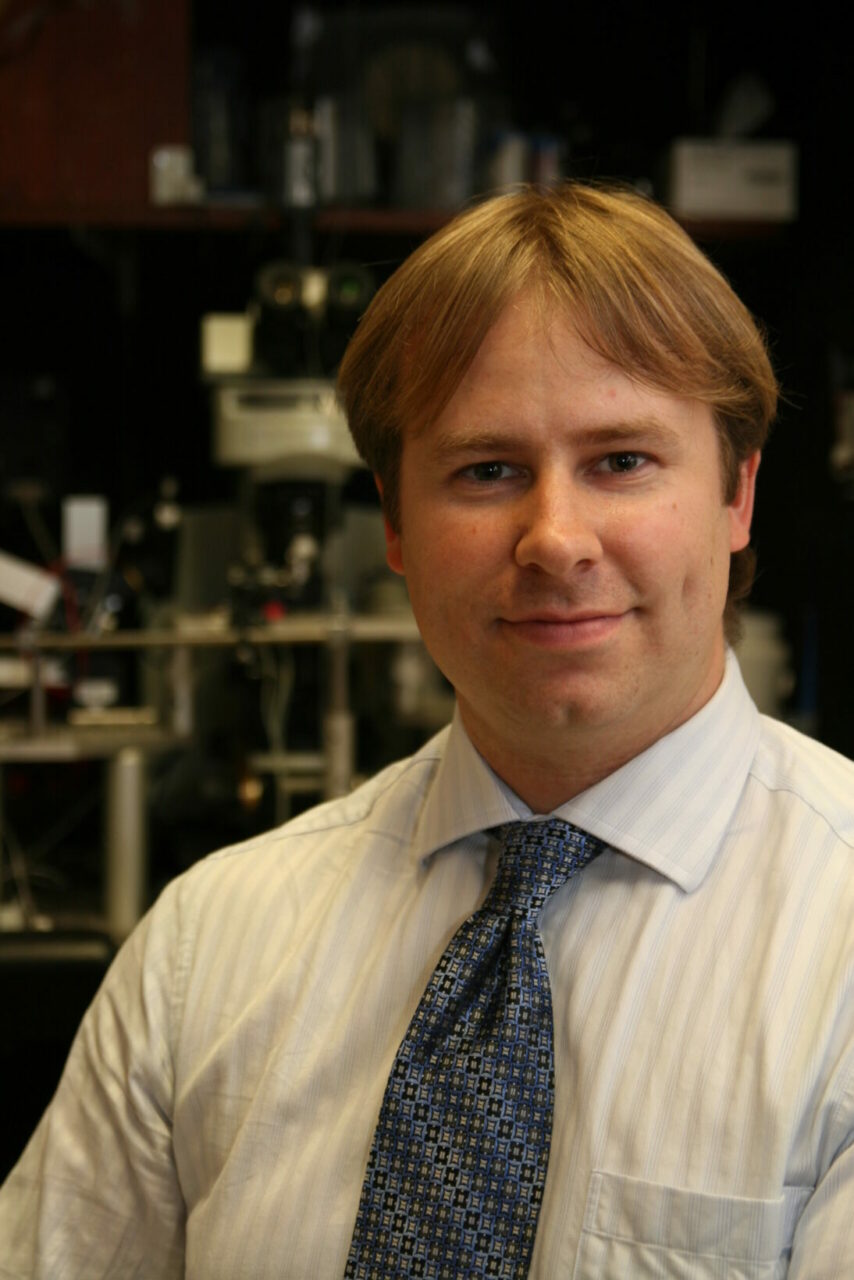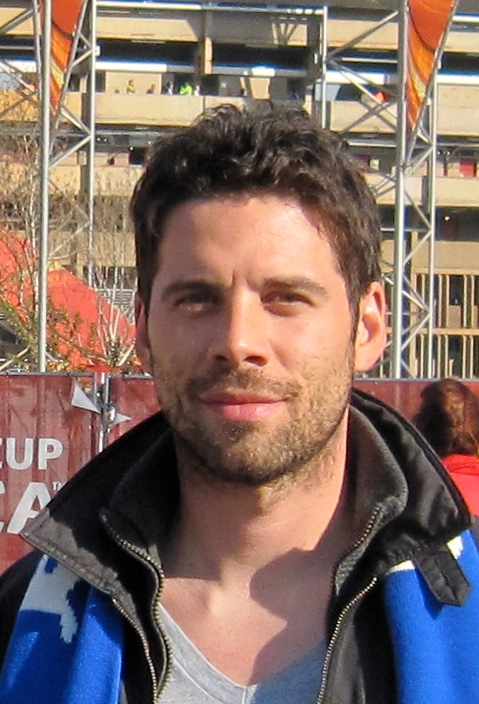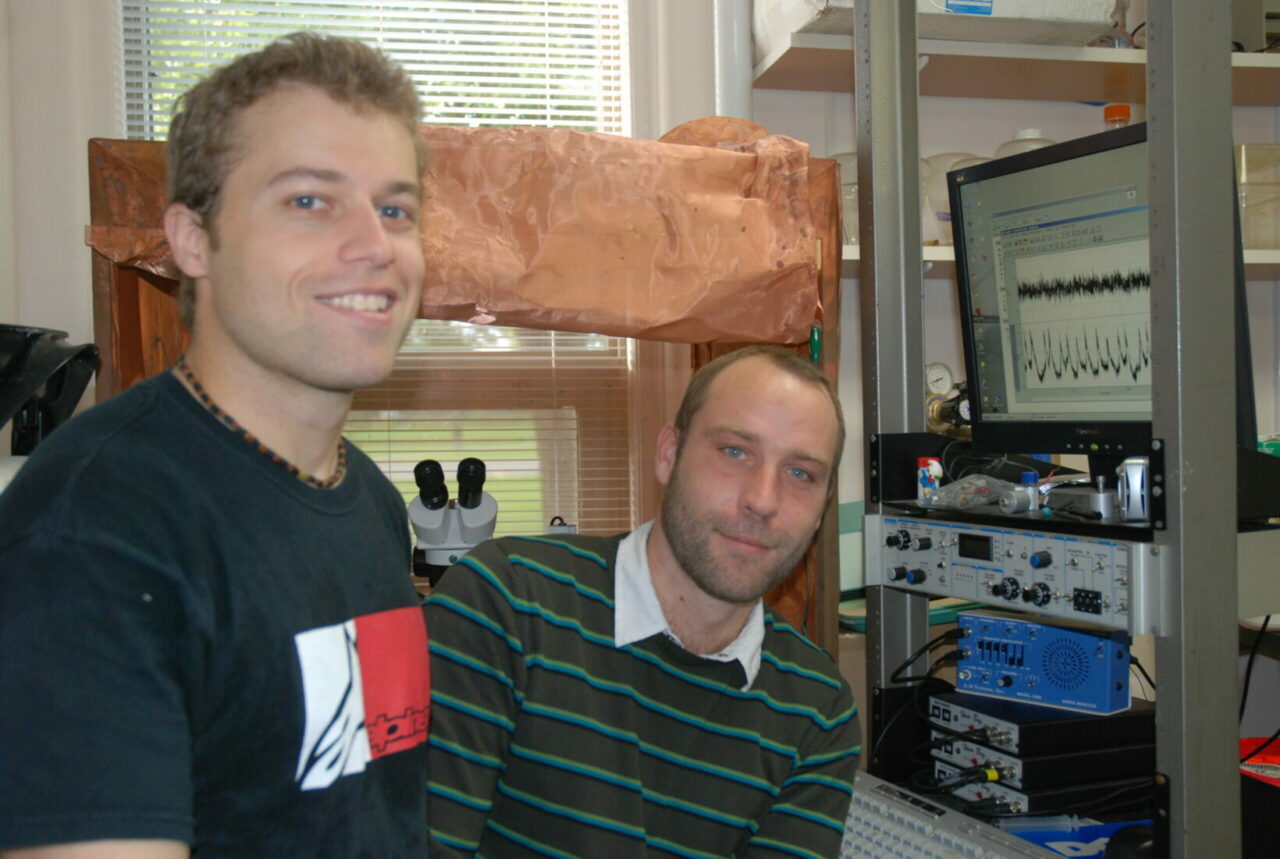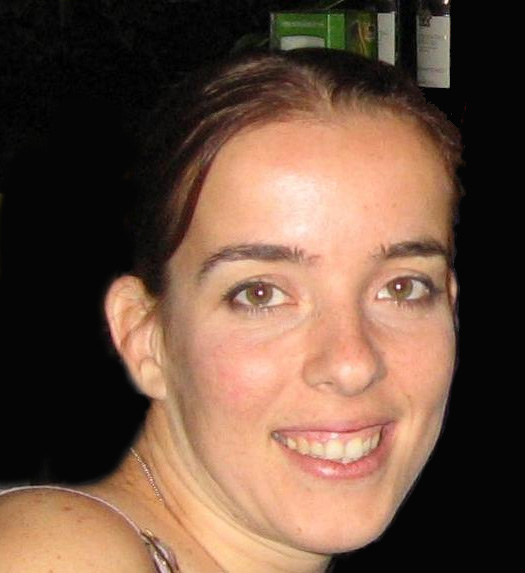From memory and neural activity, to sleep regulation and the effects of strokes on gait, the recently published research of five exemplary students at the Faculty is being recognized through the MedStar Award. Eric Trudel, Michael Bidinosti, Romain Goutagny, Jesse Jackson and Tal Krasovsky are the most recent students to have received the award, worth $1,000 and given monthly based on a research article recently published as first author.
The award was developed to recognize the excellence of research conducted by undergraduate (BSc) and graduate students (MSc, PhD), post-doctoral fellows and residents in all fields and disciplines in the Faculty of Medicine of McGill University or one of its affiliated hospitals or research institutes. It also aims to promote careers in health research. Read below for more on the most recent winners and their research:

September 2010 MedStar
Eric Trudel (Co-author: Bourque CW)
Winning article:
Central clock excites vasopressin neurons by waking osmosensory afferents during late sleep
Nature Neuroscience 2010 13 (4) :467-74. Epub 2010 Feb 28.
“Throughout the day, our body must remain hydrated to avoid the pathological effects of dehydration and electrolyte imbalance. During the day this equilibrium is achieved through a careful matching of water intake (fluid consumption) and water excretion through urine production,” explains Trudel. “My PhD project explored how the body prevents dehydration while we sleep – when no water intake occurs. My paper sheds light on why we don’t become dehydrated while we sleep. Our study has drawn widespread interest in both the scientific and lay communities.”
Ever since high school Eric has had in an interest in biological science. He has since received an MSc degree in Dr. Charles W. Bourque’s lab at the Centre for Neuroscience at McGill University, as well as a PhD degree, and continues pursuing a post-doctoral degree. His research interest lies in the balance of water and minerals maintained by the brain through close monitoring of the blood osmolality (OVLT).
—

October 2010 MedStar
Michael Bidinosti (Co-authors: Ran I, Sanchez-Carbente MR, Martineau Y, Gingras AC, Gkogkas C, Raught B, Bramham CR, Sossin WS, Costa-Mattioli M, DesGroseillers L, Lacaille JC and Sonenberg N.)
Winning article:
Postnatal deamidation of 4E-BP2 in brain enhances its association with raptor and alters kinetics of excitatory synaptic transmission
Molecular Cell. 2010 37 (6):797-808.
“What molecular mechanisms are involved in forming memories? We discovered that, unlike other tissues, the mammalian brain chemically modifies a protein, known as 4E-BP2, thus altering its normal function,” explains Bidinosti about his research. “This discovery sheds new light on how protein modification in the brain is involved in the molecular and cellular mechanisms of memory processes and should spark further research toward solving memory loss impairments.”
Michael’s interest is in the molecular mechanisms controlling protein synthesis in the mammalian central nervous system and how this impacts learning and memory. He is a graduate student in the laboratory of Dr. Nahum Sonenberg at McGill University’s Department of Biochemistry and the Rosalind and Morris Goodman Cancer Research Centre.
—

November 2010 MedStar
Romain Goutagny, Jesse Jackson (Co-Author: Williams S.)
Winning article:
Self-generated theta oscillations in the hippocampus
Nature Neuroscience. 2009 Dec;12(12):1491-3. Epub 2009 Nov 1.
“In Dr. Williams’ laboratory, together with Jesse Jackson, I developed the whole hippocampus preparation in vitro,” explains Goutagny. “Our study suggests that meaningful patterns of neural activity underlying cognition can be generated intrinsically by the brain,” adds Jackson. “My ongoing work is aimed at identifying what role neural oscillations can have in mediating neural connectivity in the brain, and how processes such as working memory are governed by neural synchrony within and between brain regions,” says Jackson.
After completing his PhD in Neuroscience in Lyon, France, Romain Goutagny joined the lab of Dr. Sylvain Williams at the Douglas Mental Health University Institute at McGill. His research interests lie in the neuronal network and its responsibility for its onset and maintenance, and how this third state of conscience is believed to play a critical role in memory consolidation.
Jesse Jackson is currently a PhD candidate in the Integrated Program in Neuroscience at McGill. For his thesis work, he is studying the mechanisms of hippocampal theta and gamma rhythm generation in the lab of Dr. Sylvain Williams, along with Romain Goutagny, at the Douglas Mental Health University Institute. His primary interests in neuroscience are focused on the network mechanisms of learning and memory, and how meaningful patterns of network activity can influence changes in brain connectivity.
—

December 2010 MedStar
Tal Krasovsky (co-author: Levin MF.)
Winning article:
Review: toward a better understanding of coordination in healthy and poststroke gait
Neurorehabilitation and Neural Repair. 2010 Mar-Apr;24(3):213-24. Epub 2009 Oct 12.
“With this work, I hope to gain a wider perspective on the scope of the impairments caused by stroke, specifically the decrease in gait stability and coordination, as well as a better understanding of ways to evaluate and possibly reduce those impairments,” explains Krasovsky. “I believe that a better understanding of the mechanisms leading to impairments in stroke will contribute to the design and evaluation of better interventions for the stroke population.”
After graduating from the Wingate Institute of Physical Education and Sport in Israel, Tal became interested in gaining a deeper understanding of motor control through her experience working with different populations, ranging from children to the elderly. She is currently a PhD student in the School of Physical and Occupational Therapy at McGill University, under the supervision of Dr. Mindy Levin. Her doctoral work evaluates the role of interlimb coordination on gait stability in post-stroke individuals.
Click here for more information on applying for a MedStar Award.
From memory and neural activity, to sleep regulation and the effects of strokes on gait, the recently published research of five exemplary students at the Faculty is being recognized through the MedStar Award. Eric Trudel, Michael Bidinosti, Romain Goutagny, Jesse Jackson and Tal Krasovsky are the most recent students to have received the award, worth $1,000 and given monthly based on a research article recently published as first author.
The award was developed to recognize the excellence of research conducted by undergraduate (BSc) and graduate students (MSc, PhD), post-doctoral fellows and residents in all fields and disciplines in the Faculty of Medicine of McGill University or one of its affiliated hospitals or research institutes. It also aims to promote careers in health research. Read below for more on the most recent winners and their research:
September 2010 MedStar
Eric Trudel (Co-author: Bourque CW)
Winning article:
Central clock excites vasopressin neurons by waking osmosensory afferents during late sleep
Nature Neuroscience 2010 13 (4) :467-74. Epub 2010 Feb 28.
“Throughout the day, our body must remain hydrated to avoid the pathological effects of dehydration and electrolyte imbalance. During the day this equilibrium is achieved through a careful matching of water intake (fluid consumption) and water excretion through urine production,” explains Trudel. “My PhD project explored how the body prevents dehydration while we sleep – when no water intake occurs. My paper sheds light on why we don’t become dehydrated while we sleep. Our study has drawn widespread interest in both the scientific and lay communities.”
Ever since high school Eric has had in an interest in biological science. He has since received an MSc degree in Dr. Charles W. Bourque’s lab at the Centre for Neuroscience at McGill University, as well as a PhD degree, and continues pursuing a post-doctoral degree. His research interest lies in the balance of water and minerals maintained by the brain through close monitoring of the blood osmolality (OVLT).
—

October 2010 MedStar
Michael Bidinosti (Co-authors: Ran I, Sanchez-Carbente MR, Martineau Y, Gingras AC, Gkogkas C, Raught B, Bramham CR, Sossin WS, Costa-Mattioli M, DesGroseillers L, Lacaille JC and Sonenberg N.)
Winning article:
Postnatal deamidation of 4E-BP2 in brain enhances its association with raptor and alters kinetics of excitatory synaptic transmission
Molecular Cell. 2010 37 (6):797-808.
“What molecular mechanisms are involved in forming memories? We discovered that, unlike other tissues, the mammalian brain chemically modifies a protein, known as 4E-BP2, thus altering its normal function,” explains Bidinosti about his research. “This discovery sheds new light on how protein modification in the brain is involved in the molecular and cellular mechanisms of memory processes and should spark further research toward solving memory loss impairments.”
Michael’s interest is in the molecular mechanisms controlling protein synthesis in the mammalian central nervous system and how this impacts learning and memory. He is a graduate student in the laboratory of Dr. Nahum Sonenberg at McGill University’s Department of Biochemistry and the Rosalind and Morris Goodman Cancer Research Centre.
—

November 2010 MedStar
Romain Goutagny, Jesse Jackson (Co-Author: Williams S.)
Winning article:
Self-generated theta oscillations in the hippocampus
Nature Neuroscience. 2009 Dec;12(12):1491-3. Epub 2009 Nov 1.
“In Dr. Williams’ laboratory, together with Jesse Jackson, I developed the whole hippocampus preparation in vitro,” explains Goutagny. “Our study suggests that meaningful patterns of neural activity underlying cognition can be generated intrinsically by the brain,” adds Jackson. “My ongoing work is aimed at identifying what role neural oscillations can have in mediating neural connectivity in the brain, and how processes such as working memory are governed by neural synchrony within and between brain regions,” says Jackson.
After completing his PhD in Neuroscience in Lyon, France, Romain Goutagny joined the lab of Dr. Sylvain Williams at the Douglas Mental Health University Institute at McGill. His research interests lie in the neuronal network and its responsibility for its onset and maintenance, and how this third state of conscience is believed to play a critical role in memory consolidation.
Jesse Jackson is currently a PhD candidate in the Integrated Program in Neuroscience at McGill. For his thesis work, he is studying the mechanisms of hippocampal theta and gamma rhythm generation in the lab of Dr. Sylvain Williams, along with Romain Goutagny, at the Douglas Mental Health University Institute. His primary interests in neuroscience are focused on the network mechanisms of learning and memory, and how meaningful patterns of network activity can influence changes in brain connectivity.
—

December 2010 MedStar
Tal Krasovsky (co-author: Levin MF.)
Winning article:
Review: toward a better understanding of coordination in healthy and poststroke gait
Neurorehabilitation and Neural Repair. 2010 Mar-Apr;24(3):213-24. Epub 2009 Oct 12.
“With this work, I hope to gain a wider perspective on the scope of the impairments caused by stroke, specifically the decrease in gait stability and coordination, as well as a better understanding of ways to evaluate and possibly reduce those impairments,” explains Krasovsky. “I believe that a better understanding of the mechanisms leading to impairments in stroke will contribute to the design and evaluation of better interventions for the stroke population.”
After graduating from the Wingate Institute of Physical Education and Sport in Israel, Tal became interested in gaining a deeper understanding of motor control through her experience working with different populations, ranging from children to the elderly. She is currently a PhD student in the School of Physical and Occupational Therapy at McGill University, under the supervision of Dr. Mindy Levin. Her doctoral work evaluates the role of interlimb coordination on gait stability in post-stroke individuals.
Click here for more information on applying for a MedStar Award.
